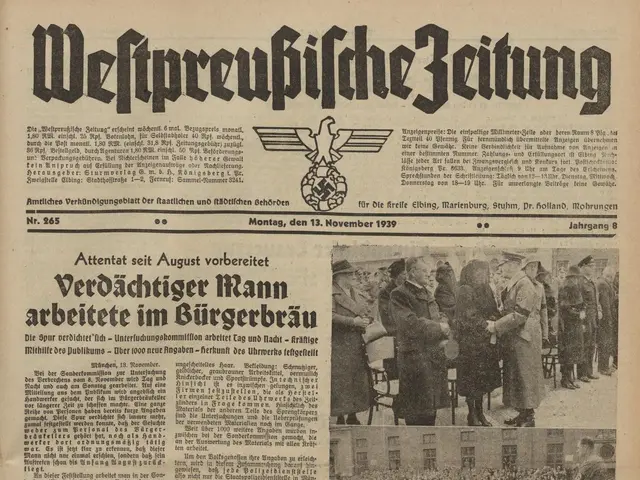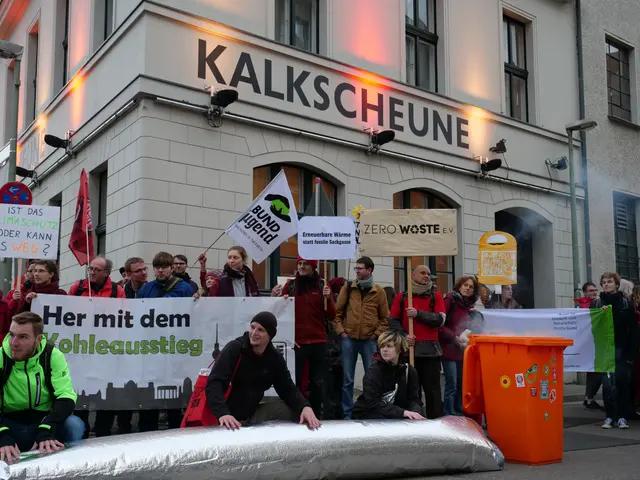Boeing initiates its second attack in under a year across three defense facilities
Boeing Strike Disrupts Production of Key Military Aircraft
A strike by around 3,200 Boeing machinists in the St. Louis area, which began on August 4, 2025, has caused significant disruption to the production of critical military aircraft and weapons at these plants. The workers, members of the International Association of Machinists (IAM) District 837, are demanding an end to concessions like stagnating wages amid inflation, two-tier pay scales, and the elimination of company-paid pensions.
The ongoing strike has shut down production at three factories that build key military aircraft such as the F-15 warplanes, F/A-18 Super Hornet, and the next-generation F-47 stealth fighter, as well as other defense products including the MQ-25 tanker drone and the T-7 trainer. The F-47, the Pentagon's next-generation fighter plane, is expected to be built at a Boeing plant in the St. Louis area, though production details are not yet disclosed.
Despite years of serious financial problems, Boeing remains one of the nation's largest manufacturers, with contractors spread across all 50 states. The company's Defense, Space and Security unit has logged nearly $11 billion in losses from late 2021 through the end of last year, primarily due to Pentagon contracts with cost overruns.
The strike was due to the rejection of a tentative agreement that would have given many members raises of 40% over four years. A revised contract that was later voted on also was rejected due to objections from rank-and-file members regarding scheduling provisions. The IAM negotiating committee had recommended that members ratify the deal presented last week, citing stronger pensions, real wage growth, and better work-life balance.
Boeing general manager and senior St. Louis site executive Dan Gillian expressed disappointment over the rejection of the offer that featured 40% average wage growth and addressed the primary issue on alternative work schedules. Boeing CEO Kelly Ortberg believes the company will be able to weather the costs of the strike, suggesting that it would be far less than the cost of last year's strike of 33,000 commercial plane unit workers.
The strike affects Boeing's defense plants, but the company has a huge backlog of contracts, for both commercial and military aircraft, that will keep it in business. IAM Midwest Territory General Vice President Sam Cicinelli stated that the workers building aircraft and defense systems deserve a contract that secures their families and recognizes their expertise. Boeing has withdrawn the $5,000 signing bonus that was part of its offers to the union if the members did not ratify a deal before the strike deadline.
The strike is the latest blow to Boeing, following years of financial losses and setbacks, including the grounding of the 737 Max model due to fatal crashes. Boeing's CEO, Kelly Ortberg, stated that he is not overly concerned about the implications of the strike and believes the company can manage its way through it. The strike is led by the International Association of Machinists (IAM).
As the strike continues, the disruption to the production and delivery schedules of frontline and next-generation fighter jets crucial to national defense is growing. The longer the strike continues, the greater the impact on the U.S. defense industrial base and ongoing military aircraft deliveries.
- The Boeing strike, focusing on workers' concerns about stagnating wages, two-tier pay scales, and the elimination of company-paid pensions, is disrupting production in the manufacturing sector of key military aircraft, such as the F-47 stealth fighter, in the aerospace industry.
- Financially, Boeing, despite years of problems, remains one of the nation's largest manufacturers, with contracts in the finance sector across all 50 states, including its Defense, Space and Security unit that reported losses of nearly $11 billion from late 2021 to the end of the previous year.
- If the strike continues, its impact on the U.S. defense industrial base could be significant, particularly affecting the production and delivery schedules of frontline and next-generation fighter jets, which are crucial to national defense.








